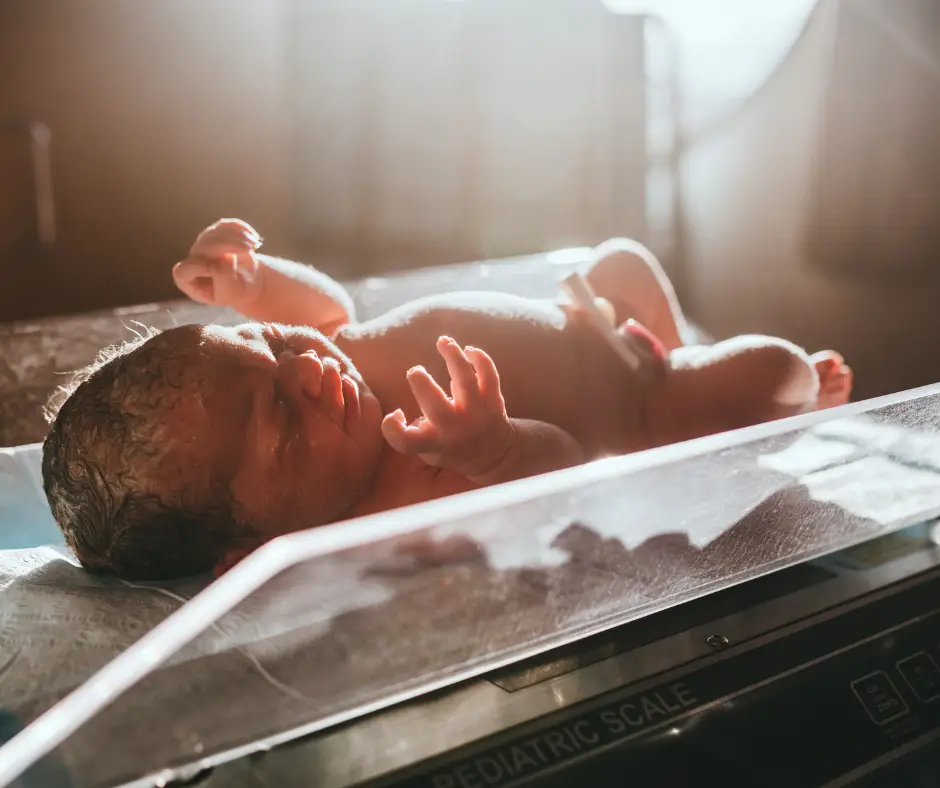A heartfelt guide to navigating loss, healing together, and finding hope again.
Introduction
Experiencing a miscarriage is a profoundly challenging event that affects both partners emotionally and physically. As a supportive partner, understanding the complexities of miscarriage and offering compassionate support is crucial. This guide provides detailed information on miscarriage causes, its impact on future fertility, emotional and physical effects, and practical ways to support your partner through this difficult time.
Understanding Miscarriage: Causes and Statistics
A miscarriage, or spontaneous abortion, is the loss of a pregnancy before 20 weeks gestation. It’s a common occurrence, with approximately 10–20% of known pregnancies ending in miscarriage (Cleveland Clinic, 2023). However, the actual number is likely higher, as many occur before a woman realizes she is pregnant.
Common causes include:
– Chromosomal Abnormalities – The most frequent cause, where the embryo has an incorrect number of chromosomes (Cleveland Clinic, 2023).
– Maternal Health Conditions – Chronic illnesses such as diabetes, thyroid disorders, or autoimmune issues.
– Hormonal Imbalances – Conditions like luteal phase defects affect implantation.
– Uterine Abnormalities – Issues like fibroids or a uterine septum may interfere with pregnancy.
– Lifestyle Factors – Smoking, alcohol use, and drug abuse can increase risk (March of Dimes, 2023).
Impact on Future Fertility
A single miscarriage does not typically affect long-term fertility. Most women who miscarry go on to have healthy pregnancies (Mayo Clinic, 2023). However, repeated miscarriages (two or more) may suggest an underlying issue and should be evaluated by a medical professional. It’s usually recommended to wait until after one normal menstrual cycle before trying to conceive again.
Emotional and Physical Effects of Miscarriage
Emotionally, a miscarriage may bring grief, sadness, anxiety, and even depression. According to research published by NIHR, approximately 1 in 3 women may experience PTSD-like symptoms after a miscarriage (NIHR, 2020). Physically, miscarriage may involve heavy bleeding, cramping, fatigue, and hormonal shifts. It’s essential to monitor for signs of complications and consult a healthcare provider when necessary (ACOG, 2020).
Supporting Your Partner Through Miscarriage
Supporting your partner involves:
– Open Communication – Encourage honest conversation and mutual emotional expression.
– Provide Practical Help – Assist with daily tasks and attend medical appointments.
– Respect the Grieving Process – Everyone heals differently; be patient and responsive.
– Seek Professional Help – Consider therapy or counseling for emotional support (Postpartum Support International, 2022).
– Educate Yourself – Understand what your partner is experiencing to empathize effectively.
Support Groups and Resources
Helpful organizations include:
– RESOLVE: The National Infertility Association – https://resolve.org
– Tommy’s – https://www.tommys.org
– The Miscarriage Association – https://www.miscarriageassociation.org.uk
– Postpartum Support International – https://www.postpartum.net
Reconnecting with Your Partner
Reconnecting with Your Partner
After a miscarriage, emotional disconnection can quietly set in, even between the most loving partners. Grief looks different for everyone—some want to talk, some don’t. Some cry, others shut down. The key is to continue showing up for each other.
Ways to Rebuild Connection:
- Schedule Regular Emotional Check-Ins
Create a routine moment to ask: “How are you feeling—really?”
This keeps emotions from bottling up and invites both of you to be honest, vulnerable, and supported. - Respect Each Other’s Grieving Style
Some people dive into distractions; others sit in the silence. There’s no “right way” to grieve. Be open about what you need—and listen to what your partner needs too. - Make Space for Intimacy Without Pressure
Physical closeness after miscarriage can be emotionally complicated. Some may crave it, others may need space. Rebuild intimacy gently—through cuddles, hand-holding, or simply sitting side-by-side without the expectation of sex. - Celebrate Your Bond in Small Ways
- Cook a favorite meal together
- Watch a movie that makes you laugh
- Take a slow walk or revisit a favorite memory
These moments of shared joy help you both feel grounded and united.
- Consider Counseling Together
Couples therapy isn’t just for relationships in crisis—it’s for those learning how to hold grief as a team. Even a few sessions can strengthen communication and emotional connection.
When You’re Ready to Try Again
There’s no universal “right time” to try again after a miscarriage. Some couples feel ready quickly; others need months or years.
Talk openly about:
- Fears around another loss
- Hopes and hesitations
- Medical guidance and timing
- Emotional readiness
Important: Many people conceive and carry a healthy pregnancy after miscarriage. If there are concerns (especially after two or more losses), speak with a fertility specialist (Tommy’s, 2023).
Next Steps After Miscarriage
There’s no fixed timeline for trying again. When ready, discuss emotional readiness, medical advice, and your hopes and fears openly. Track cycles, discuss testing if necessary, and continue prioritizing emotional healing. Many couples go on to have healthy pregnancies after loss (Mayo Clinic, 2023).
Final Thoughts
Miscarriage is a shared emotional experience. Your role is not to fix the pain, but to be a steady, loving presence. Compassion, patience, and honest connection will guide you through the healing process together.
Additional Resources:
Videos:
English:
Spanish:
Westchester County Resources
1. Pregnancy Loss Support Program (PLSP) – National Council of Jewish Women NY
Offers free peer counseling and support groups for those who have experienced miscarriage, stillbirth, or newborn death.
- Website: pregnancyloss.org
- Email: [email protected]
- Phone: (646) 884-9464mvcommunityservices.org+6nationalshare.org+6pregnancyloss.org+6starlegacyfoundation.org+3miscarriageresources.com+3nationalshare.org+3
2. Maggie Rose Perinatal Bereavement Program – Northern Westchester Hospital
Provides support groups, including sessions for pregnancy after loss and men’s groups.
- Contact: Marianne Walsh
- Email: [email protected]
- Phone: (914) 787-6158 Ext. 1317mamarissa.com+8starlegacyfoundation.org+8pregnancyloss.org+8
3. Family Services of Westchester
Offers counseling services, including grief support for individuals and families.
- Website: fsw.org
- Phone: (914) 937-2320
Putnam County Resources
1. Maternal Infant Services Network (MiSN)
Provides support and resources for maternal and infant health, including assistance for those experiencing pregnancy loss.
- Website: misn-ny.org
- Phone: (845) 561-3575misshare.orgmisn-ny.org
2. Catholic Charities Community Services – Putnam County
Offers counseling and support services for individuals and families dealing with loss.
- Website: cccsny.org
- Phone: (845) 279-5276cccsny.org
Additional Resources
1. Share Pregnancy & Infant Loss Support
Provides support for those who have experienced the death of a baby through miscarriage, stillbirth, or early infant death.
- Website: nationalshare.org
- Phone: (800) 821-6819misshare.org+4mend.org+4wnypbn.org+4nationalshare.org+1wnypbn.org+1wnypbn.org
2. Butterfly Kisses Alliance
Offers support and resources for families experiencing miscarriage, stillbirth, or infant loss.
- Website: butterflykissesalliance.org
- Email: [email protected]
Bibliography
– American College of Obstetricians and Gynecologists. (2020). Early pregnancy loss. https://www.acog.org
– March of Dimes. (2023). Miscarriage. https://www.marchofdimes.org/find-support/topics/pregnancy/miscarriage
– National Institute of Child Health and Human Development. (2022). What are common causes of miscarriage? https://www.nichd.nih.gov
– Mayo Clinic. (2023). Pregnancy after miscarriage. https://www.mayoclinic.org
– Cleveland Clinic. (2023). Miscarriage: Causes and risk factors. https://my.clevelandclinic.org
– NIHR Evidence. (2020). Pregnancy loss can lead to PTSD symptoms. https://evidence.nihr.ac.uk
– Tommy’s. (2023). Support for partners after miscarriage. https://www.tommys.org
– The Miscarriage Association. (2023). https://www.miscarriageassociation.org.uk
– Postpartum Support International. (2022). https://www.postpartum.net
– RESOLVE: The National Infertility Association. (2022). https://resolve.org
Legal Disclaimer: The information provided by our nonprofit is for informational purposes only and not a substitute for professional medical advice, diagnosis, or treatment. Always consult a qualified healthcare provider for medical concerns. We make no guarantees about the accuracy or completeness of the information and are not liable for any decisions made based on it. If you have a medical emergency, call 911 or seek immediate medical care.


